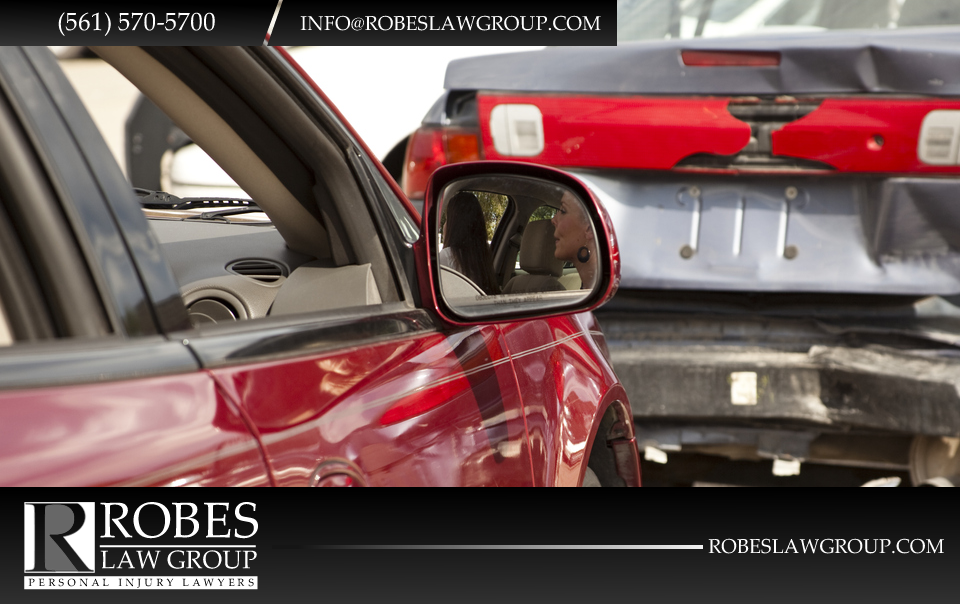Avoiding rear-end car accidents in South Florida

South Florida has a lot of traffic congestion on I-95, with cars following closely and often stopping unexpectedly, particularly during rush hours. That increases the likelihood of rear-end collisions. Soft tissue injuries are very common in rear-end collisions, and these injuries can be painful and disruptive. When vehicles are traveling at high speeds, rear-end crashes can lead to more serious injuries, including spinal fractures, broken facial bones and traumatic brain injuries. Here are tips for how to avoid rear-end collisions:
Put Your Cellphone Away
The increased use of cellphones has caused the number of car accidents and related injuries caused by distracted driving to increase. Using a cellphone to send or receive email or text messages while driving is incredibly distracting and dangerous, as well as illegal under Florida law. Using a cellphone distracts you cognitively, manually, and visually. Taking your eyes off the road to look down at a phone for even two seconds is enough time to cause you to rear-end the vehicle in front of you.
Keep a Safe Distance
You should never tailgate or allow less than a couple of car lengths of space between you and the vehicle in front. There is a reason that you are taught in driver’s education to stay one car length away for every 10 miles per hour you are traveling. Failing to leave enough room reduces the amount of time and distance you have to react if the driver ahead brakes suddenly. It increases your risk of colliding with the car in front of you and being at fault in a rear-end collision. If you give yourself enough room, then you will have adequate time and distance to stop if need be.
If you notice that a car behind you is following at a distance that is too close for comfort, the best thing that you can do is to change lanes and let the vehicle pass you. Do not tap on your brakes or slow down to send a message to the tailgating driver. Doing so may be dangerous and increase your risk for a crash.
Maintain a Safe Speed
That may be slower than the posted speed limit. For example, the speed limit may be 65 miles per hour on I-95. However, if it is pouring rain, the time it takes to stop on wet pavement is increased and travelling at the posted speed limit may be dangerous. Traveling at a slower speed may be much safer.
When a driver exceeds a safe speed for the traffic conditions, the driver increases the risk of causing a rear-end collision, particularly if the driver is following too closely. The faster that your vehicle is traveling, the more difficult it will be to stop your vehicle, and the more time that will be required to stop.
Slow Gradually
It is not just the rear driver that has a duty to take actions necessary to avoiding rear-end accidents. The driver in front should operate their vehicle responsibly, too. If you slow gradually when coming to a stop rather than waiting until the last second to slam on your brakes, then you will give the driver behind you plenty of notice, allowing them to slow down gradually as well. Slamming on the brakes at a stop sign or red light increases your risk of being involved in a rear-end collision. Doing so creates more wear and tear on your brakes, too.
Stay Focused
All drivers should stay focused on the task of driving and nearby vehicles. Any distraction, including eating while driving, tuning the radio, talking to passengers, trying to control unsecured pets within a vehicle, tending to children, and looking out the window at scenery, can be dangerous and increase the risk of a rear-end car accident or common car accident type. Commit to staying focused when behind the wheel, and remember that taking your eyes off of the road for even a second is all it takes to increase your risk of a crash.
Liability for Rear-End Car Accidents
All drivers have a responsibility when it comes to taking action to prevent rear-end car accidents. The driver in the rear is generally presumed to be at fault in a rear-end collision, but there are circumstances where a driver in front may contribute to a collision and share responsibility. If you have been in a rear-end crash caused by another driver and sustained injuries or believe that another driver was at fault in your car accident, our aggressive South Florida rear-end accident attorneys can answer your questions and help you pursue compensation. To schedule a free case consultation with our team today, call us now at (561) 570-5700 or use button below.
The information contained in this blog is merely for informational purposes and is not intended as legal advice.
